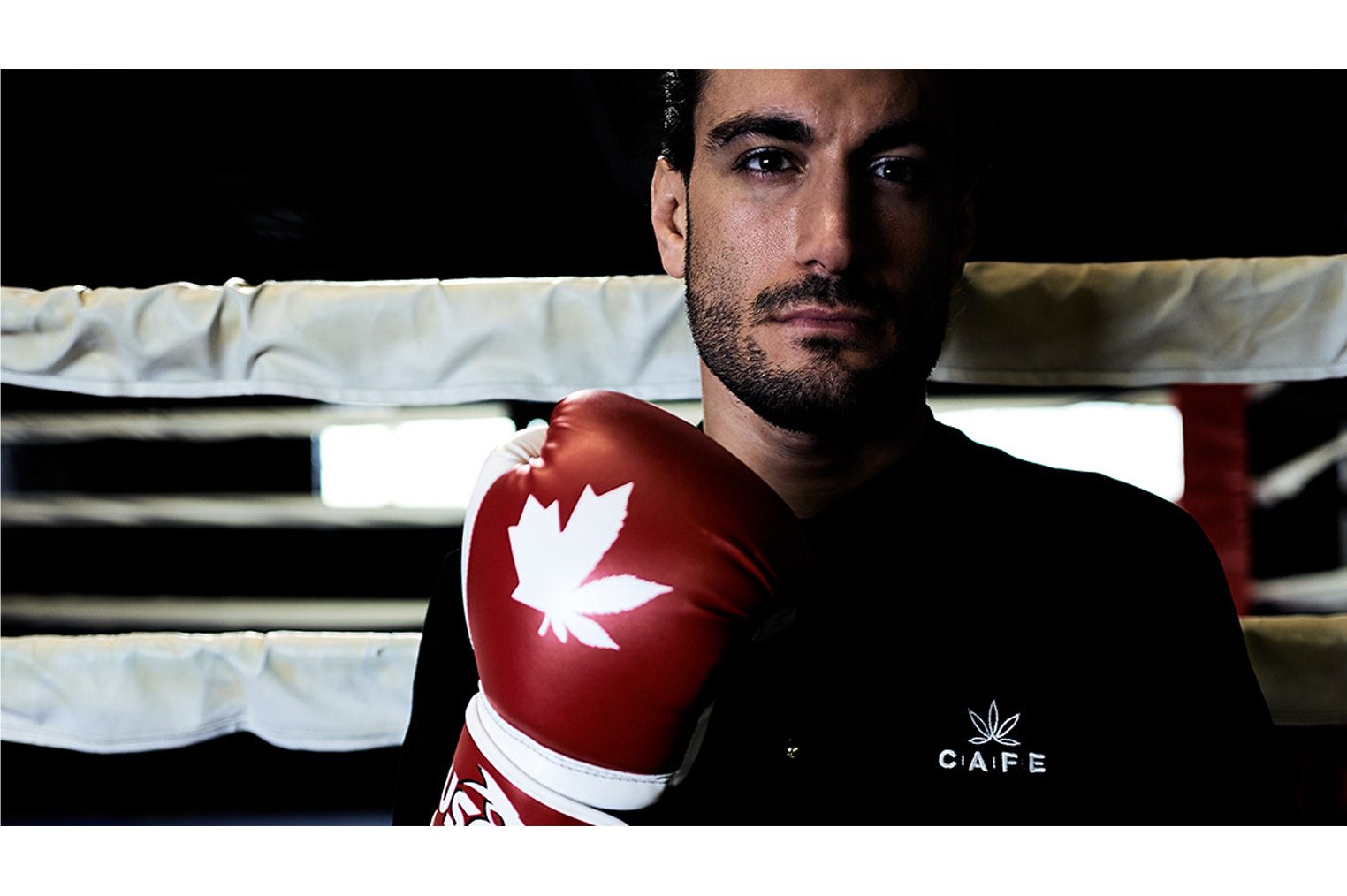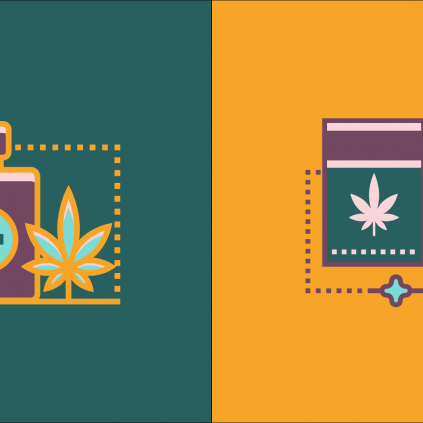Elias Theodorou: Championing the Fight for Cannabis in Sports

Professional athletes subject their bodies to high-intensity physical stress and are constantly pushing themselves to take their performance to the next level. Mixed martial artist Elias Theodorou is no exception, and with an impressive win record spanning his 8-year career, he is one of the highest-profile MMA fighters in Canada. Unlike other athletes in his sport, the fight doesn’t end when his gloves come off. For nearly four years, Elias has been fighting for medical equality and is among a growing list of professional athletes who advocate for the use of cannabis in sports.
Pro-fighters pour their blood, sweat and tears into their sport—between the trauma from taking multiple blows to their bodies, to pushing themselves past the point of exertion, it’s impossible to avoid occupational injuries. For years, Elias has been suffering from bilateral neuropathic pain; “Basically, I experience chronic pain in upper extremities,” he tells us.
Despite the efforts of multiple physicians, the first-line treatments available for peripheral neuropathy did not work for Elias. He finally turned to medical cannabis and found it effective in treating his pain, which worked for him both as a patient and as an athlete. Navigating legal issues surrounding medicinal marijuana wasn’t easy for Elias. “The process of becoming accepted as a sanctioned cannabis athlete is long and complicated,” he explains.
MMA & Anti-Doping
Like many sports at the professional level, MMA implements anti-doping policies. The United States Anti Doping Agency (USADA), as well as the World Anti Doping Agency (WADA) list marijuana as a prohibited substance. Athletes who test positive for cannabis face the same repercussions as those who use performance enhancers, such as steroids or testosterone, which are both classified as banned substances. In 2000, however, the federal court of Canada ruled that Canadians have the constitutional right to use marijuana as medicine. Upon Senate’s approval of Bill c-45, recreational cannabis became legalized on October 17, 2018. Cannabis legalization was one of the leading factors that pushed Elias to compete as a professional in Canada, “I have fought and will continue to fight to exercise my right as a patient to use cannabis as advised by my doctor.”
Managing Pain
In addition to using cannabis to manage pain, Elias incorporates cannabis oil into his daily health regimen. “I use Herb Angels CBD tincture every morning,” says Elias. “Their CBD oil helps me manage pain and recover faster.” He also noticed a change in his endurance, allowing him to train harder without the fear of burning out. Because CBD has no psychotropic effects (it won’t get you high), it is suitable to use at any time of the day. With little to no risk of toxicity or overdose, people can use CBD oil to treat a range of symptoms safely and effectively.
Herb Angels Tincture
Elias uses the Herb Angels THC tincture in the evenings to help manage pain and inflammation and to take advantage of its sedative effects. “Using THC oil at night helps me to sleep better with fewer disturbances and wake up with significantly less pain.” Studies have shown that using CBD and THC together boosts their therapeutic qualities. In the cannabis realm, this is referred to as the entourage effect, a phenomenon where two or more cannabinoids work synergistically, enhancing specific psychoactive properties.
Opioids vs Cannabis
The sports world offers the cannabis industry countless opportunities to expand innovation and develop products specifically for athletes. Currently, therapeutic options for athletes are limited, with nonsteroidal anti-inflammatory drugs (NSAIDs) and opioids posing more health risks than benefits. In North America, we are facing a crisis that began with doctors prescribing opiates for pain, under the impression that they were safe. Cannabis, on the other hand, is not only more effective in treating neuropathic pain—it is a far safer alternative that is not nearly as addictive. These issues faced by both professional and non-professional athletes are what fuel Elias in his fight for fair access to cannabis.
What’s Next?
Both in the cage and out, Elias continues to champion the change needed in sports medicine. “The fight to break the stigma associated with cannabis isn’t just for me—it’s for all athletes, so they don’t have to face the same challenges that I had throughout my career.” With so much misinformation attached to marijuana, Elias hopes that his positive experiences with cannabis will inspire people from all walks of life to join the fight for fair access and medical equality.




